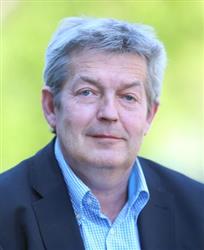ProjektRole of atypical nuclear IκB protein IκBζ in HCC formation
Grunddaten
Titel:
Role of atypical nuclear IκB protein IκBζ in HCC formation
Laufzeit:
01.07.2017 bis 30.06.2021
Abstract / Kurz- beschreibung:
Although NFκB has intensively been investigated for its role in inflammation and tumorigenesis, the identification a novel subfamily of so-called atypical IκB proteins has added a fascinating new control layer to the complex biology of this transcription factor. The four atypical members – IκBζ, IκBNS, IκBη and Bcl-3 – differ considerably from classical IκB proteins that typically inhibit gene expression by sequestering NFκB in the cytoplasm. In contrast, atypical IκBs are exclusively localized in the nucleus where they can repress but, more importantly, also activate selected target genes largely by chroma-tin remodeling events. We have recently elucidated an essential role of IκBζ and IκBNS in macrophage and T cell polarization. Importantly, we found that IκBζ-deficient mice are completely resistant to the development of highly aggressive liver tumors triggered by transposon-based overexpression of on-cogenic c-Myc, Nras and p53 knockdown. In addition, we discovered that IκBζ is indispensable for the expression of key cytokines, such as IL-6, IL-10 and CCL2, which impair immunosurveillance or promote HCC progression. Intriguingly, also metabolic reprogramming seems to be controlled by IκBζ, suggesting that multiple liver-intrinsic and immune-mediated mechanisms contribute to the tumor-promoting function of IκBζ. The aim of this project is to investigate the role of atypical IκBs, in particu-lar IκBζ, for the development of mouse and human liver tumors. Through interaction within the CRC we will explore the role of IκBζ not only in transposon-based HCC, but also in inflammation- and met-abolic syndrome-driven cancer models. By employing cell type-specific knockout mice we will dissect the specific oncogenic function of IκBζ in hepatocytes and immune cells. Moreover, we will define specific target genes involved in the regulation of cell survival, metabolism and immune response that contribute to HCC development. Collectively, this project will provide not only new insights into the oncogenic role of atypical IκBs, but as a long-term goal might also provide new therapeutic opportuni-ties to interfere with selective NFκB responses in disease processes.
Schlüsselwörter:
Onkologie
oncology
Hepatologie
Molekulare Medizin
Immunologie
Beteiligte Mitarbeiter/innen
Leiter/innen
Medizinische Fakultät
Universität Tübingen
Universität Tübingen
Exzellenzcluster: Individualisierung von Tumortherapien durch molekulare Bildgebung und funktionelle Identifizierung therapeutischer Zielstrukturen (iFIT)
Zentren oder interfakultäre wissenschaftliche Einrichtungen
Zentren oder interfakultäre wissenschaftliche Einrichtungen
Hailfinger, Stephan
Medizinische Fakultät
Universität Tübingen
Universität Tübingen
Lokale Einrichtungen
Interfakultäres Institut für Biochemie (IFIB)
Interfakultäre Institute
Universität Tübingen
Universität Tübingen
Geldgeber
Bonn, Nordrhein-Westfalen, Deutschland


